Description
BERGAMOT
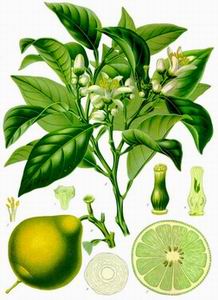 Plant/Part: Tree /Peel (Source: Italy)
Plant/Part: Tree /Peel (Source: Italy)
Latin Name: Citrus Bergamia
Family: Rutaceae
Extraction: Expression
AROMA: Lovely light citrus aroma
PROPERTIES: This light, fruity citrus oil is uplifting, antiseptic, and relaxing. Relaxes and refreshes and is good for confidence building. Uplifts the spirit and emotions with its fresh and invigorating citrus fragrance. Useful for caring for oily and blemished skin. Use in vaporiser to disperse unpleasant odours. It is familiar to many as the flavouring in Earl Grey Tea. Also works well on the digestive tract and relieves conditions such as painful digestion, dyspepsia, flatulence, colic, indigestion and loss of appetite. An excellent intestinal antiseptic, casts out intestinal parasites and diminishes gall stones apparently. May be useful to anorexia sufferers by regulating appetite. Also helpful with infections of the respiratory system which may include breathing difficulties as well as tonsillitis, bronchitis and tuberculosis. Often effective on cold sores, chicken pox and shingles. Could have a tonic action on the uterus and was once used to heal sexually transmitted diseases. Excellent insect repellent and keeps pets away from plants. Skin type: oily, blemished, normal to combination.
CHEMICAL CONSTITUENTS: Linalyl, Acetate, Linalol, Sequiterpenes, Terpenes, Furocoumarins.
PRECAUTIONS: Do not apply to skin or use in bath prior to exposure to the sun – It can increase the susceptibility of the skin to severe burning A bergapten free Bergamot is available which reduces the susceptibility to photosensitising. Safety Information: photo toxic 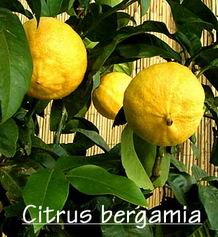
BLENDS: Blends well with: Chamomile, Coriander, Cypress, Geranium, Juniper, Lavender, Lemon, Neroli, Ylang Ylang.
USES:
Digestive: analgesic. stimulates the production of gastric juices (carminative), tones the stomach, aids digestion, improves appetite. relaxes the muscles of the digestive tract, thus relieving constipation (laxative). used in indigestion, dyspepsia, colic, stomach cramps, flatulence.
Genito-Urinary: stimulates the production of urine (diuretic). has an antiseptic effect, and is used to treat infections in the area. used in the treatment of cystitis, urethritis, leuccorhea, pruritis and thrush.
Respiratory: antiseptic, antispasmodic. used for flu, tonsilitis, laryngitis, sore throat, bronchitis.
Immune System: strengthens the immune system,
Skin/Hair: antiseptic, anti-inflammatory, aids in the healing of wounds and scars. astringent, good for oily skin. used for acne, eczema, spots, cold sores (and other herpes infections), boils, wounds and seborrhoea of the skin and scalp.
Emotions/Mind: uplifting, refreshing and encouraging. it can help relieve anxiety and depression, ease grief and sadness, increase mental alertness and correct emotional imbalances (studies show that it balances the activity of the hypothalamus). it “has been reported to help people who are trying to break the smoking habit” (r.wilson)
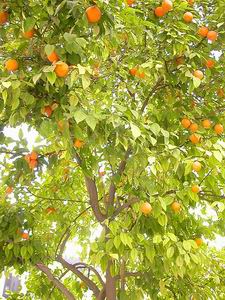 Other: deodorising. combats fever. useful in restoring strength in a person recovering from disease. repels insects and soothes insects bites.
Other: deodorising. combats fever. useful in restoring strength in a person recovering from disease. repels insects and soothes insects bites.
The Bergamot tree (Citrus Bergamia) takes its name from the small town of Bergamo in Northern Italy, around which it was originally cultivated. The fruit (like a miniature orange), has been used for hundreds of years in Italian folk medicine, but not in that of other countries, as the tree was almost unknown outside Italy, and the fruit was not exported until relatively recent times.
The oil is obtained by simple pressure from the rind of the fruit, and although various attempts to mechanise the process have been tried, the best oil is still that which is hand-pressed. As you might expect, it has a delightfully fresh, citrussy aroma, which is almost universally liked. The active constituents include linalyl acetate, limonene and linalol, and the essential oil is of a delicate green colour.
The three main areas in which this oil is uniquely valuable are: urinary tract infection, depression and anxiety, and skin care. Bergamot oil has a strong affinity for the urino-genital tract, and is one of the most valuable oils (along with Camomile and Garlic) in treating cystitis and urethritis. Many cases of cystitis begin as urethritis, and the infection travels up the urethra to the bladder. Bergamot oil, used in the very early stages, can often prevent the infection from spreading upwards in this way. It should be added to the bath, and used as a local wash (very diluted-to ‘/2% or 1%). As a local wash, it is also valuable for the relief of vaginal pruritis and mild discharges (though it is important to ensure that the cause of any discharge is investigated). If an attack of cystitis does not respond to treatment, particularly if there is fever, medical help should be sought without delay. Bergamot is especially valuable to people who suffer from recurrent attacks of cystitis, as it is a powerful disinfectant of the urinary system.
Many people with recurrent cystitis are also tense, anxious or depressed, and this can become a vicious circle, in which the tension sparks off an attack, and the lowering effects of the illness lead to even greater depression. Although Camomile and Garlic are both valuable for the physical treatment of this debilitating condition, there is nothing better than Bergamot to break this chain reaction, by relieving the tension and depression, whilst actively treating the physical causes. In helping with mental and psychological stales, Bergamot is almost the most valuable oil at the aromatherapist’s disposal. It has been described by Robert Tisserand as ‘uplifting’ and you cannot improve on this description.
 For all tense, anxious or depressed people, Bergamot should be used in a massage oil (either alone or in a variety of blends) as the human contact with the therapist is perhaps the most important factor in such situations; but daily use as a bath oil, room fragrance or personal perfume can be very valuable additions to I the treatment. The fragrance is equally acceptable to men and women, and it blends with almost any flower oil, giving it considerable versatility. Lavender/Bergamot, Geranium/ Bergamot or all three of these oils together, are among some of the most pleasing combinations. It is particularly valuable for adding a sharper note to some of those oils which may be over-sweet to some people’s tastes.
For all tense, anxious or depressed people, Bergamot should be used in a massage oil (either alone or in a variety of blends) as the human contact with the therapist is perhaps the most important factor in such situations; but daily use as a bath oil, room fragrance or personal perfume can be very valuable additions to I the treatment. The fragrance is equally acceptable to men and women, and it blends with almost any flower oil, giving it considerable versatility. Lavender/Bergamot, Geranium/ Bergamot or all three of these oils together, are among some of the most pleasing combinations. It is particularly valuable for adding a sharper note to some of those oils which may be over-sweet to some people’s tastes.
Dr Jean Valnet mentions the use of Bergamot for loss of appetite, and this, combined with its powerful antidepressant properties, would seem to indicate a valuable possibility for helping in anorexia nervosa. However, my own experience suggests that its effect on the appetite is regulating rather than stimulant, and I have used it to help compulsive eaters. It may be that Bergamot directly influences the appetite-control centre in the brain, or that, by working with the underlying tensions that have provoked the under- or over-eating, it enables the sufferer to return to a normal weight and eating pattern. Perhaps it should be pointed out that this is not an overnight ‘cure’, but a process that involves great sensitivity on the part of the therapist, and a will to get better on the part of the person seeking help.
The antiseptic properties of Bergamot, allied to its really delicious fragrance, make it my first choice for treating acne, oily skins and all infected skin conditions. It can be used in a massage oil for facial treatment, or blended in creams, lotions or aromatic waters. A hot compress of Bergamot can be used on boils to draw out the infection and promote healing, though a person with boils should also be advised on dietary and other ways of eliminating toxins. It should be emphasised that Bergamot must never be used undiluted, as it can cause skin irritation (though a few drops on the wrist as a perfume will be harmless). Bergamot increases the skin’s sensitivity to sunlight, so making it tan faster, and there is some suggestion that it may increase the risk of skin cancer. Do not use Bergamot in massage oils, bath oils or skin preparations during sunny weather. Never use Bergamot undiluted on exposed areas of skin, as quite severe burning can result. This photosensitising effect lasts for several days after application. The same caution applies to eau de cologne, lavender water and other commercial perfumes and toiletries which contain Bergamot oil. Bergamot does not protect the skin against burning.
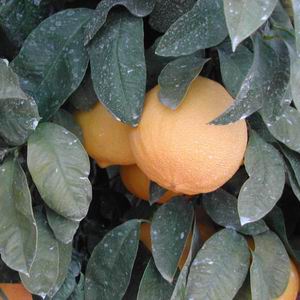 Bergamot is cooling in feverish conditions. It is an ingredient of Earl Grey tea, and of ‘real’ eau de cologne (as mentioned in the last paragraph), both of which have a cooling and uplifting effect. It is an excellent deodorant, both for personal use and for rooms and buildings. It is also an effective insect repellent, and is used commercially for this purpose. It needs to be re-applied fairly often, and is probably more effective in a blend with Lavender and other oils. It is also used commercially in various preparations intended to keep cats and dogs away from plants, and here again, fresh application every few days is needed to make it really effective.
Bergamot is cooling in feverish conditions. It is an ingredient of Earl Grey tea, and of ‘real’ eau de cologne (as mentioned in the last paragraph), both of which have a cooling and uplifting effect. It is an excellent deodorant, both for personal use and for rooms and buildings. It is also an effective insect repellent, and is used commercially for this purpose. It needs to be re-applied fairly often, and is probably more effective in a blend with Lavender and other oils. It is also used commercially in various preparations intended to keep cats and dogs away from plants, and here again, fresh application every few days is needed to make it really effective.
Bergamot has been used with success in treating respiratory and digestive problems, but there is such a wealth of oils to choose from in these areas that I tend to keep Bergamot for the special uses in which it is unrivalled. Bergamot inhibits certain viruses, in particular the Herpes simplex 1 virus, which causes cold sores. Most people carry this virus all their lives, though blisters only appear when the individual is run down or has some other infection (typically, a cold). Bergamot, either alone or combined with Eucalyptus, which is another powerful anti-viral agent, can be dabbed onto the site of the sore, either neat or, preferably, diluted in a little alcohol, at the first sign of an eruption. It may allay the pain of shingles, caused by the Herpes zoster virus, the same organism responsible for chickenpox, and I have used the oil to considerably reduce the discomfort of chickenpox in children, and hasten the young patient’s recovery.


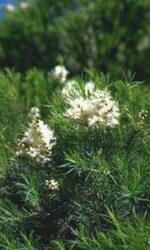

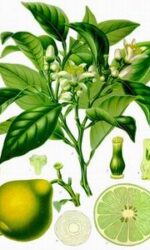
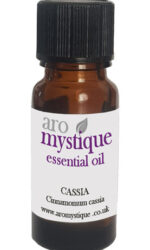
Reviews
There are no reviews yet.